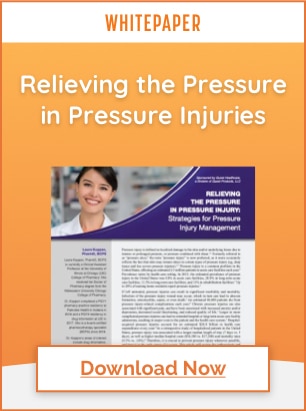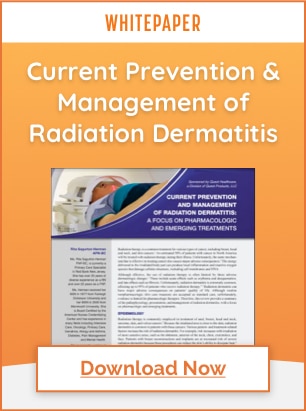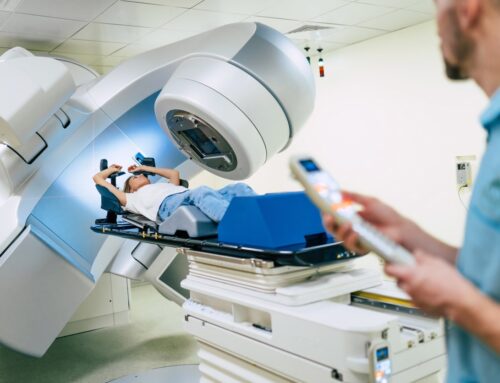
Bowel Care and COVID-19
As we continue to learn more about COVID-19 transmission rates and causes, we are able to develop safe protocols and procedures to minimize risk to patients and healthcare workers when treating its devastating effects.
It’s important to include the fecal-oral risk of contracting and/or spreading COVID-19 in our collective discussions, as studies show that this method of transmission poses a significant, and potentially overlooked, hazard.
Studies done in China have shown that COVID-19 patients have tested positive for the virus on rectal swabs even when nasopharyngeal testing was negative.
A National Institute of Health report indicates the “possibility of SARS-CoV-2 transmission via sewage, waste, contaminated water, air condition system and aerosols cannot be underestimated”.
While additional research and studies are needed to understand more about fecal-oral transmission and prevention, there is scientific agreement that fecal-oral transmission is a risk for healthcare workers and patients, and protocols need to be put in place to minimize risk.
Presence of COVID-19 in the Gastrointestinal Tract
The gastrointestinal tract is an hospitable environment for the COVID-19 virus, specifically:
“The ACE2 protein, which has been proven to be a cell receptor for SARS-CoV-2, is abundantly expressed in the glandular cells of gastric, duodenal, and rectal epithelia, supporting the entry of SARS-CoV-2 into the host cell,”
~ Hong Shan, MD, PhD, of Fifth Affiliated Hospital, Sun Yat-sen University, in Zhuhai, Guangdong Province, et al
An online study in Gastroenterology revealed viral RNA in feces, and suggests that infectious virions are secreted from gastrointestinal cells. The study also showed that 20% of SARS-CoV-2 patients showed viral RNA in feces even after negative test results in the respiratory tract, indicating that the risk of fecal-oral transmission remains even after respiratory symptoms abate and nasal swabs are negative.
This same study revealed evidence of gastrointestinal distress symptoms like nausea, diarrhea, vomiting, and/or abdominal pain in COVID-19 patients even before respiratory symptoms. This increases the risk of the contraction and/or spread of the virus through fecal matter when a patient, or their healthcare provider, is unaware that they are COVID-19 positive.
How the COVID-19 Virus Enters the Body Through Fecal-Oral Transmission
It’s essential for short and long term healthcare facilities to establish and enforce bowel care protocols to reduce the risk of contracting and spreading COVID-19 through fecal-oral transmission.
The COVID-19 virus can enter the body through infected microorganisms that are present in the digestive system. One way microorganisms enter the gastrointestinal tract is through the ingestion of contaminated food and water (both drinking and sewage water), or through contact with infected surfaces and subsequently touching the face, mouth, and/or nose.
Another cause is referred to as ‘toilet plume’, which occurs when droplets of water are transferred to surfaces when a toilet is flushed. These droplets may not always be visible, as aerosolization of toilet water occurs during flushing. The risk of infectious aerosols increases with multiple flushes through several toilet users in public restrooms or restrooms used by several people in public places like hospitals and/or nursing homes.
Bowel Care COVID-19 Protocols for Short and Long Term Care Facilities
COVID-19 makes bowel care protocols an essential aspect of reducing the risk of fecal-oral transmission of COVID-19. This can be reduced through:
Staff Awareness: Increase staff awareness of the risk of fecal-oral transmission of COVID-19, even if they are not exposed directly to COVID-19 patients.
Water Safety: Evaluate the safety of sewage treatment and water filtration processes, and implement chlorination or other solutions if needed.
Disinfect: Frequently and thoroughly disinfect all surfaces in restrooms, including toilet bowl, toilet lid, sinks, walls, toilet paper holders, faucets, hand dryers, sanitary product dispensers, and doorknobs. Provide disinfectants, wipes, and hand sanitizer for restroom users to employ themselves, in addition to hiring or contracting a dedicated cleaning staff to monitor and clean these surfaces regularly.
Hand Washing: Encourage and enforce frequent and thorough hand washing protocols for all staff/employees. If needed, hold regular training(s) to remind staff about proper hand washing protocol.
Food: Ensure all food is thoroughly washed and cooked. Reinforce hand washing protocols for all staff associated with food preparation and service. Make sure all food is stored at proper temperatures.
Toilet: Require (to the degree possible) that toilet lids be closed before flushing to reduce toilet plume risk. Due to the aerosolization of water droplets, closing the toilet lid does not negate the need to disinfect the toilet lid/rim/handle, the floor around the toilet, toilet paper dispenser, and stall walls/door handles.
Recommended Bowel Care Protocol
Providing quality care is paramount for all healthcare professionals, however historically less attention has been paid to the potential medical, financial, and safety risks of an ineffective bowel care program in an inpatient setting.
COVID-19 has augmented the importance of a bowel care protocol for healthcare facilities. Quality Care Improvement Measures not only provides enhanced patient care, but also reduces risk of exposure for patients and staff.
Studies show that patients on a regimented bowel care program for both oral and rectal therapies that achieve complete rectal emptying had 35% fewer episodes of fecal incontinence and 42% fewer incidents of soiled laundry (Age & Ageing 2000; 29: 159-164), both of which increase employee and patient risk of fecal-oral transmission of COVID-19.
A bowel management program should be implemented for any patient who experiences – or is at risk of experiencing – bowel incontinence or retention/constipation. Each patient’s individual bowel program should require the least amount of intervention (i.e. high fiber diet, dietary supplements, medications, mini-enemas, digital stimulation, etc.) to achieve the best possible outcome as identified by the treatment and rehabilitative team.
Bowel Care Daily Recommendations
Enemeez®, DocuSol®, and DocuSol® Kids Mini-Enemas
Our mini-enema products have shown to be effective for bowel care needs associated with spinal cord injury, disease, and/or general constipation. Our products are designed for ease of use for users and caregivers, with a gentle, non-irritating formula that provides fast, predictable results, typically within 15 minutes.
Disclaimer: The material contained is for reference purposes only. Alliance Labs, LLC and Summit Pharmaceuticals do not assume responsibility for patient care. Consult a physician prior to use. Copyright 2020 Summit Pharmaceuticals and Alliance Labs, LLC.
Sources:
- https://www.ncbi.nlm.nih.gov/pmc/articles/PMC4692156/
- https://www.nature.com/articles/s41575-020-0295-7
- https://www.ncbi.nlm.nih.gov/pmc/articles/PMC7074995/
- https://www.medicinenet.com/script/main/art.asp?articlekey=229095
- https://www.medpagetoday.com/infectiousdisease/covid19/85315
- https://www.gastrojournal.org/article/S0016-5085(20)30282-1/pdf?referrer=https%3A%2F%2Fwww.medpagetoday.com%2Finfectiousdisease%2Fcovid19%2F85315
- https://eportal.mountsinai.ca/Microbiology/faq/transmission.shtml








